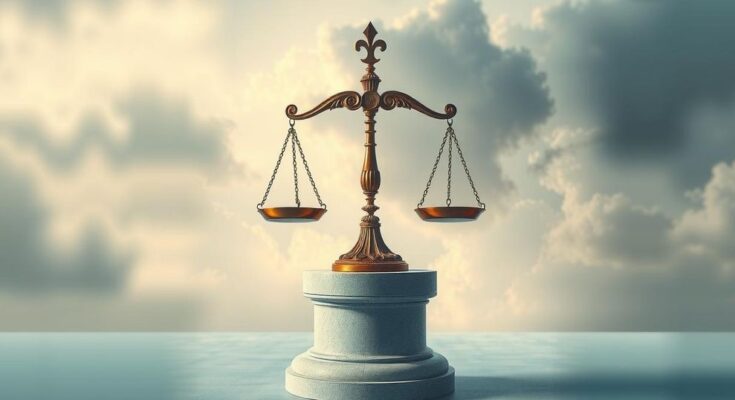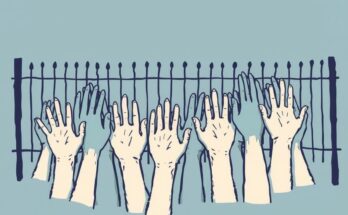In a poignant call for justice, the United States and the European Union are urging China to release Yu Wensheng, a prominent human rights lawyer convicted under vague charges of subversion. On January 6, 2024, a Chinese court upheld Yu’s three-year prison sentence, a decision that sparked international outcry. This was not merely a legal battle; it underscored the repressive climate surrounding human rights advocacy in China, where dissent is often met with harsh penalties.
Detained alongside his wife, Xu Yan, during a pivotal moment when they were en route to meet EU diplomats in April 2023, Yu and Xu remained in custody since their arrest. The couple faced sentencing in November 2024, highlighting a broader trend of silencing voices critical of the Chinese Communist Party (CCP). International diplomats, including U.S. Ambassador Nicholas Burns, expressed disappointment and reiterated demands for Yu’s immediate release, identifying the charges as politically motivated and baseless.
Within this turbulent backdrop, the European External Action Service condemned the ruling and stressed the need for Yu’s “immediate and unconditional release.” They also emphasized the importance of ensuring Xu’s safety as her release date approaches on January 13. This systematic suppression of rights lawyers in China has drawn attention from various human rights organizations, who describe the country’s legal system as an extension of authoritarian control rather than a fair judicial process.
As international attention sharpens, the reality of China’s human rights landscape continues to unfold. Senator Marco Rubio, known for his fierce criticism of the CCP, previously argued that China’s oppressive stance undermines its credibility as a global partner. The Congressional-Executive Commission on China documented Yu and Xu’s case, underscoring the precarious position of attorneys who dare to challenge the state’s narrative. Rights lawyers often face rampant persecution and dire consequences for their advocacy efforts.
Yu Wensheng, honored with the Martin Ennals Award for his courage, has long been a beacon of hope against oppressive governance. His commitment to defending marginalized groups, including Falun Gong practitioners, has showcased his unwavering dedication to justice. Even amid severe persecution, he boldly claimed that the lack of explicit laws against Falun Gong signifies a legal void that those in power cannot ignore.
As the court’s decision reverberates through the international community, criticism grows from rights organizations like Amnesty International. They declared the charges against Yu and Xu as absurdly fabricated, asserting that such actions reveal Beijing’s insecurity regarding its human rights defenders. Kate Schuetze, from Amnesty, called for their immediate and unconditional release, emphasizing the right to free speech and the dim light of hope shining through Yu’s ongoing struggle against oppression.
The U.S. and EU urge China to release human rights lawyer Yu Wensheng after a court upheld his three-year sentence for subversion. His arrest, alongside his wife Xu Yan, highlights severe human rights abuses in China. International calls for their unconditional release emphasize the repression faced by rights defenders.
In summation, the international community, led by the U.S. and EU, is demanding justice for Yu Wensheng and Xu Yan amidst a backdrop of severe human rights violations in China. Their case symbolizes the broader struggle against oppressive governance and the urgent need for reforms. As calls grow louder for their release, it serves as a powerful reminder of the resilience of those who stand firm against authoritarianism.
The ongoing case of Yu Wensheng encapsulates the tense relationship between the Chinese state and human rights advocates. It highlights the severe consequences facing those who challenge the ruling party’s authority. As a human rights lawyer, Yu exemplifies the risks associated with advocating for justice and freedom in a society where dissent is often met with hostility and repression. His case exemplifies the broader human rights issues plaguing China, including the treatment of dissidents and the criminalization of free expression.
Original Source: www.ntd.com



